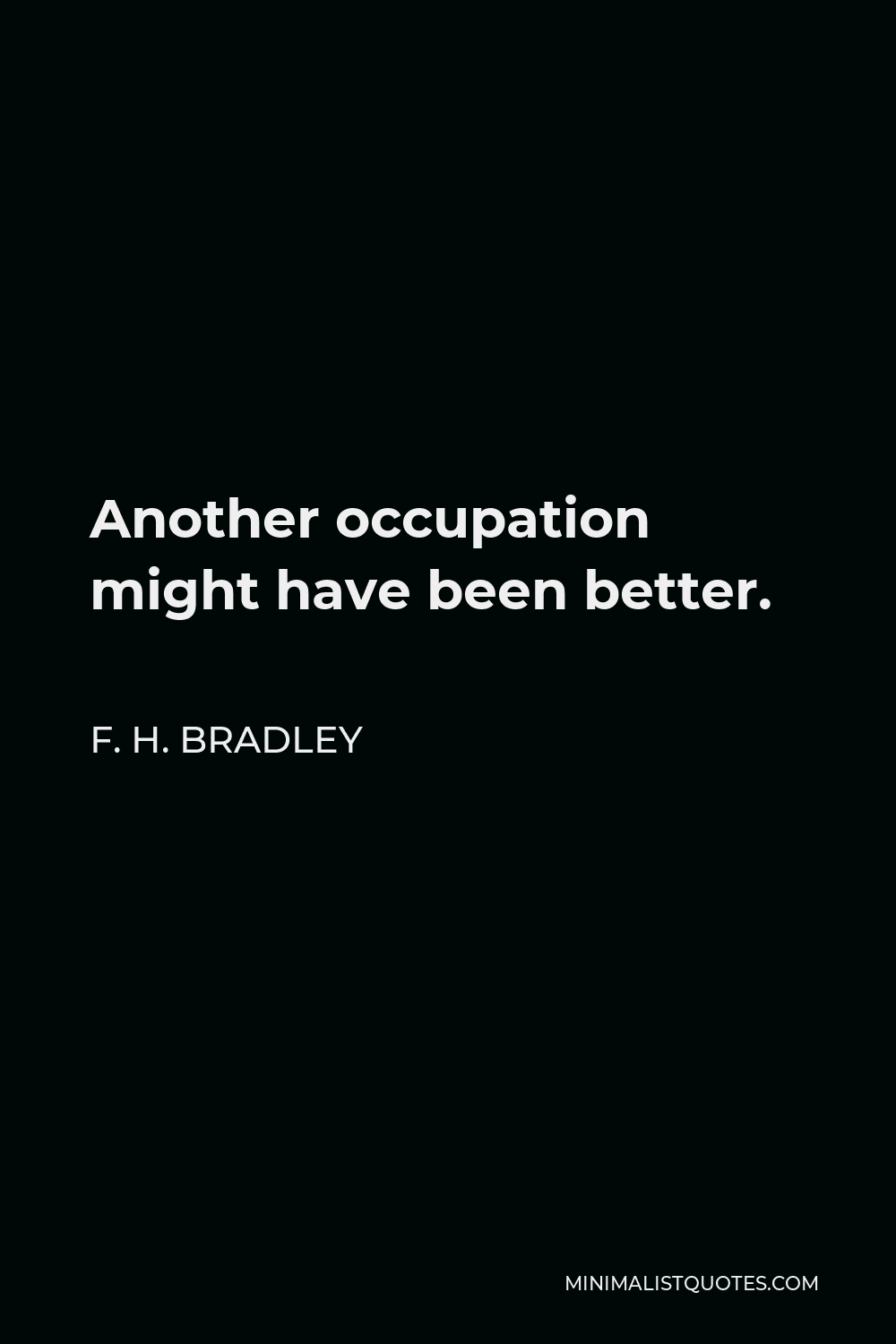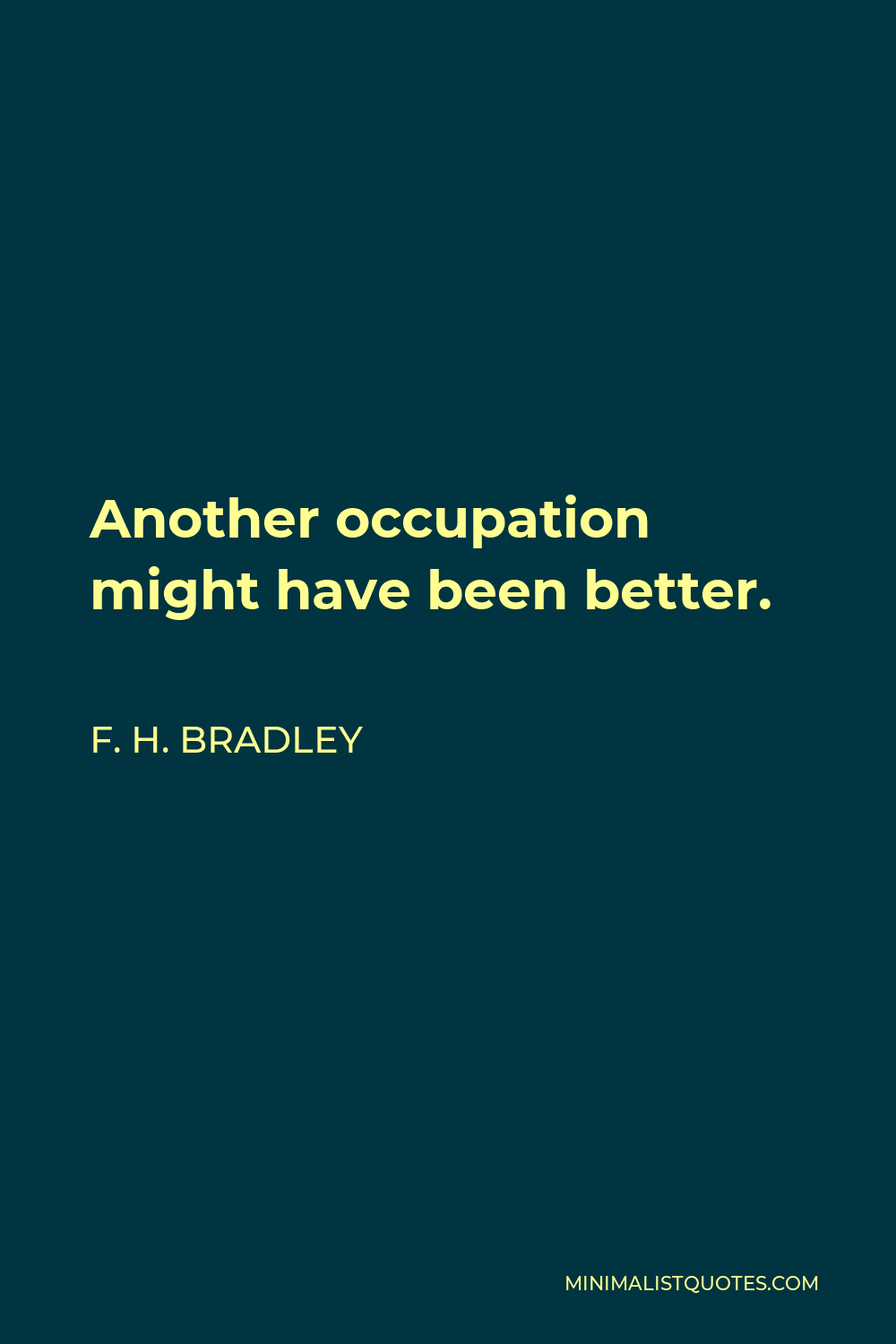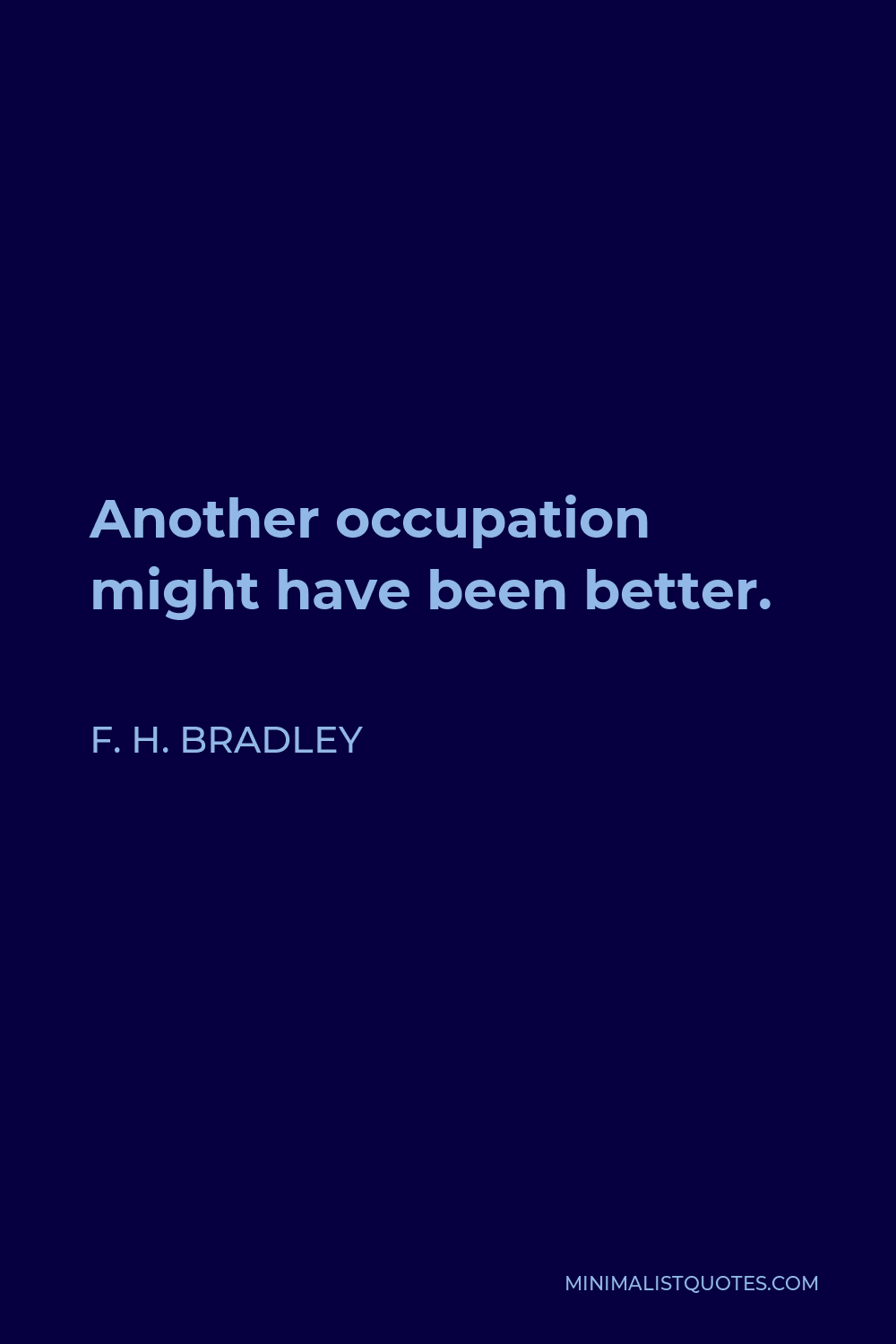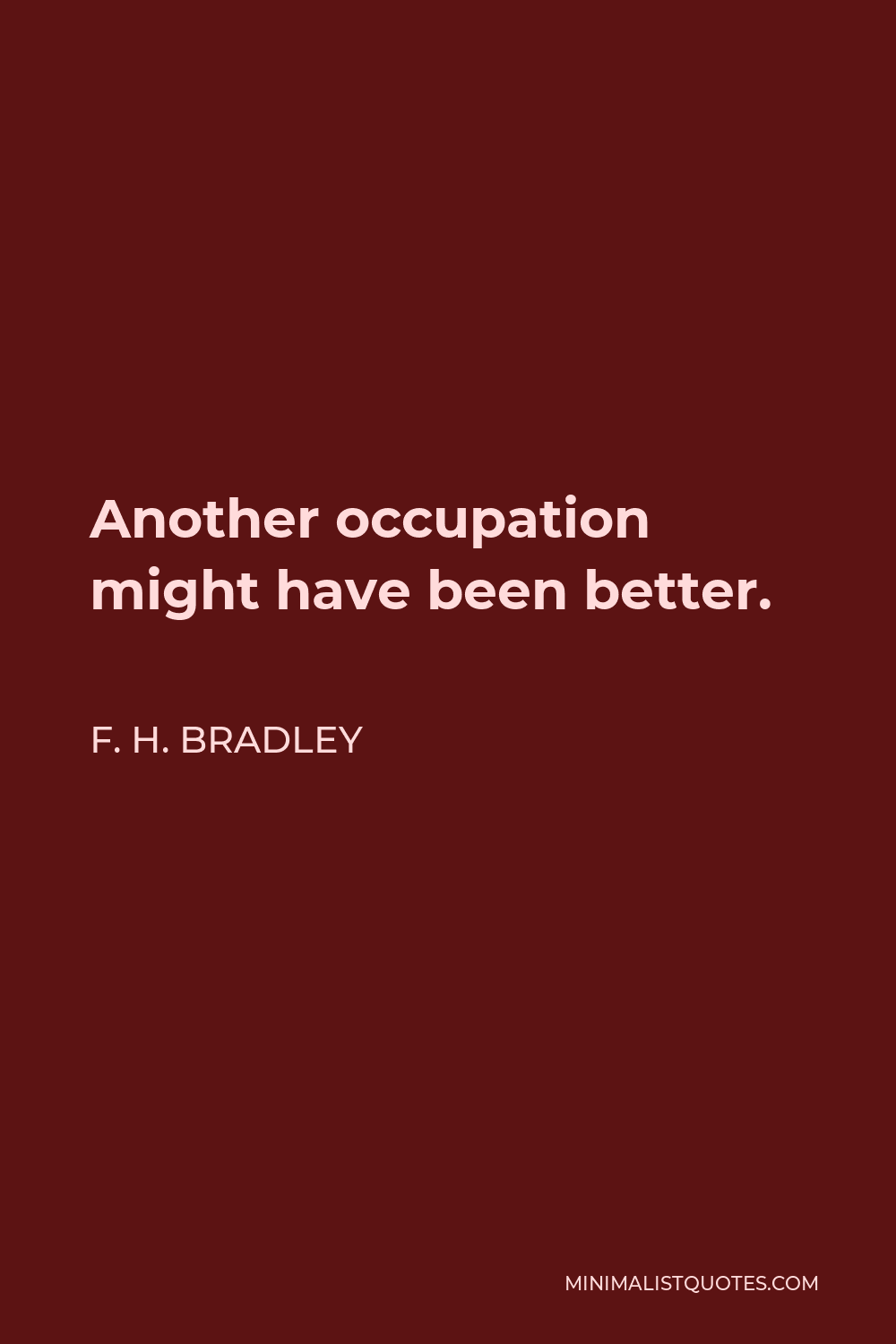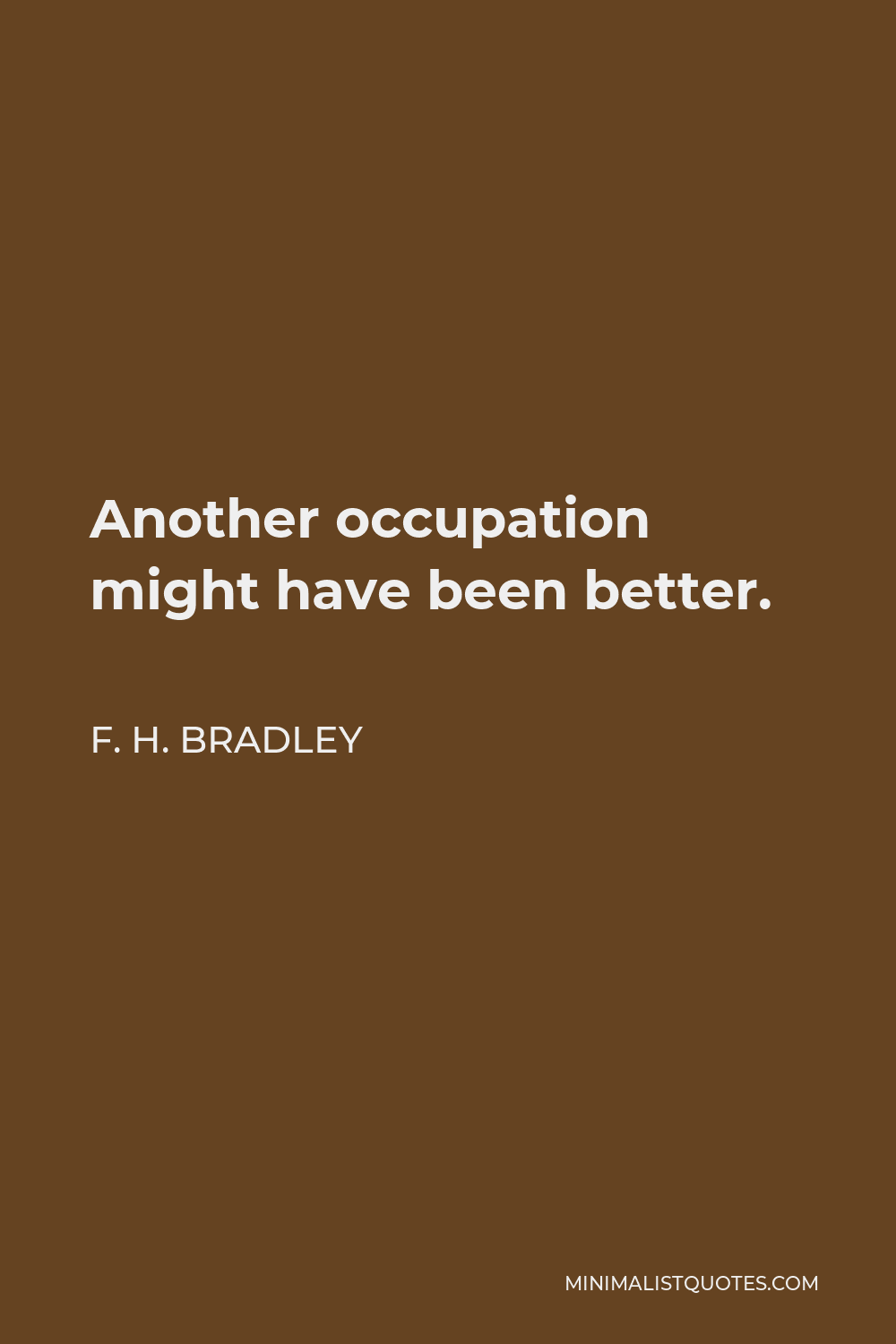The propriety of some persons seems to consist in having improper thoughts about their neighbors.
F. H. BRADLEYAnother occupation might have been better.
More F. H. Bradley Quotes
-





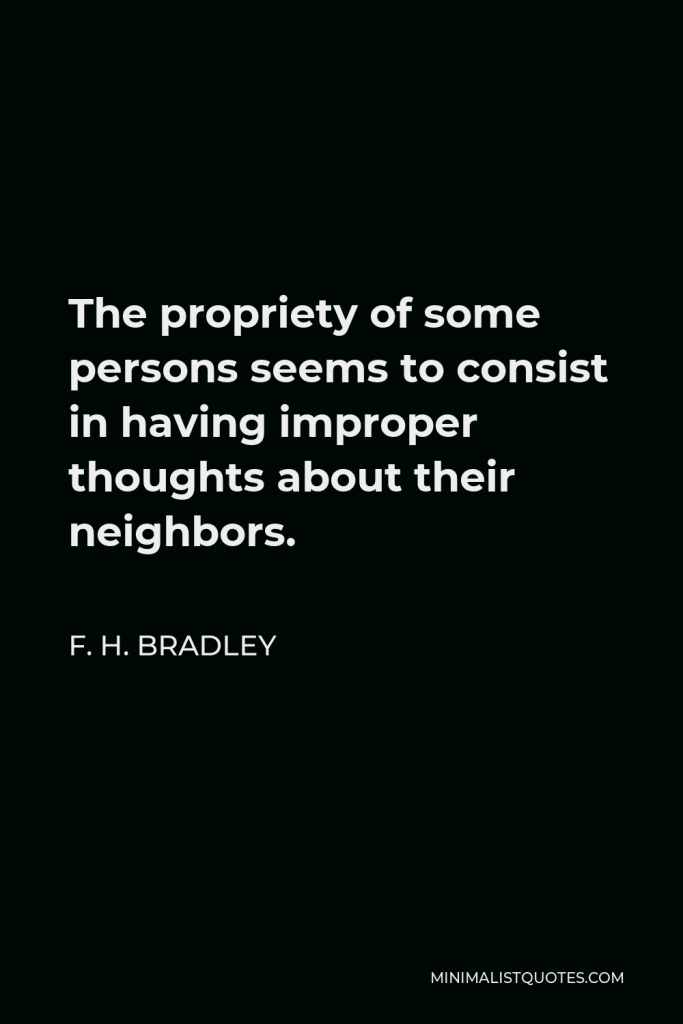

-





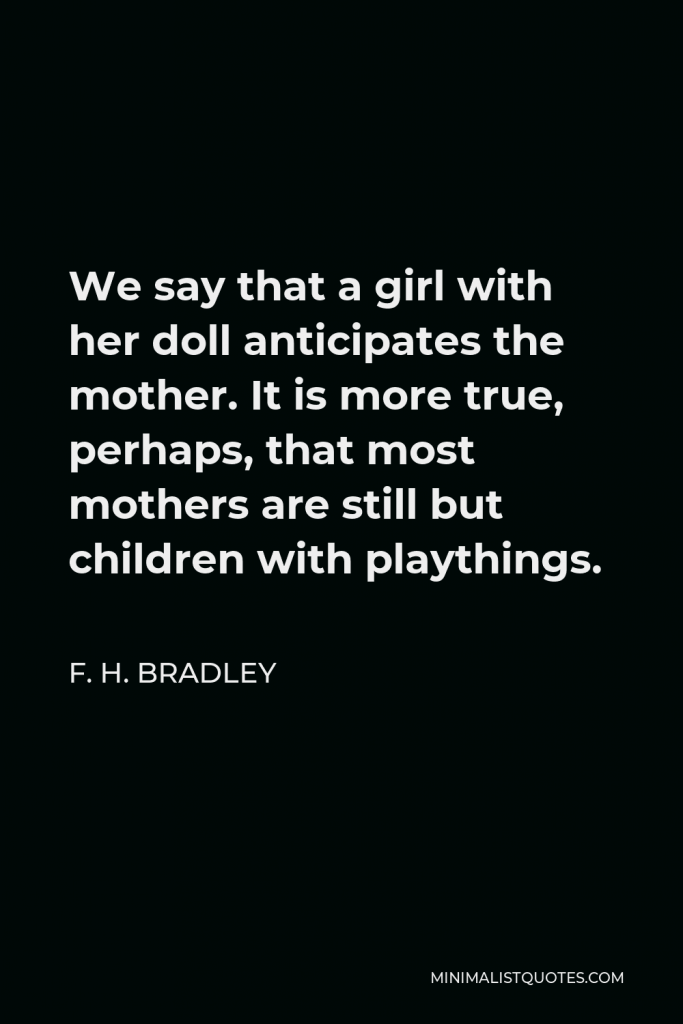

We say that a girl with her doll anticipates the mother. It is more true, perhaps, that most mothers are still but children with playthings.
F. H. BRADLEY -





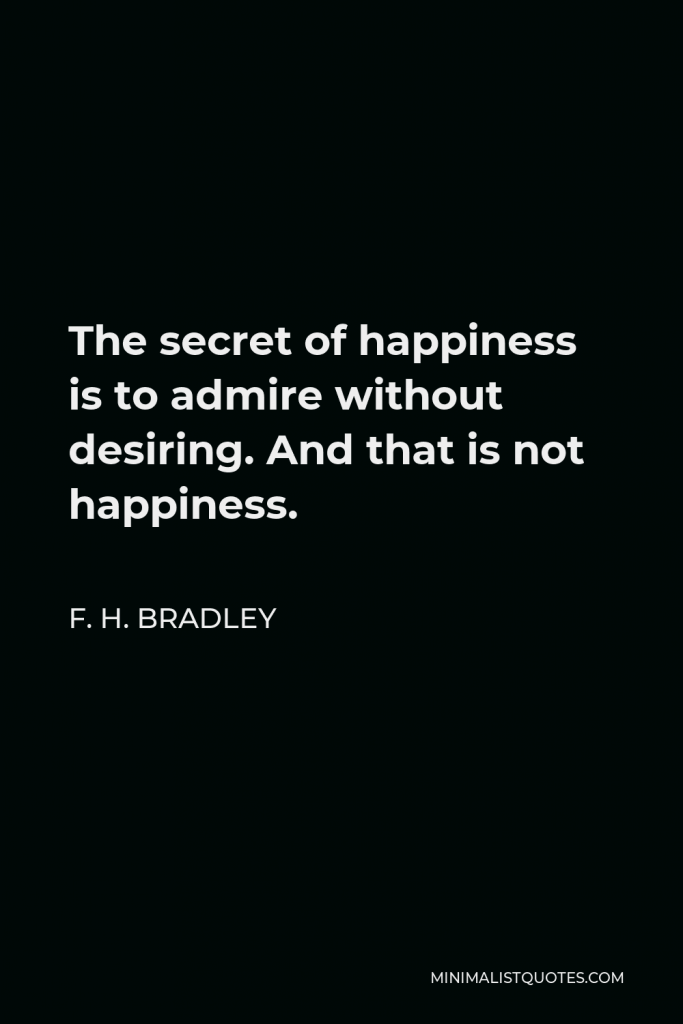

The secret of happiness is to admire without desiring. And that is not happiness.
F. H. BRADLEY -





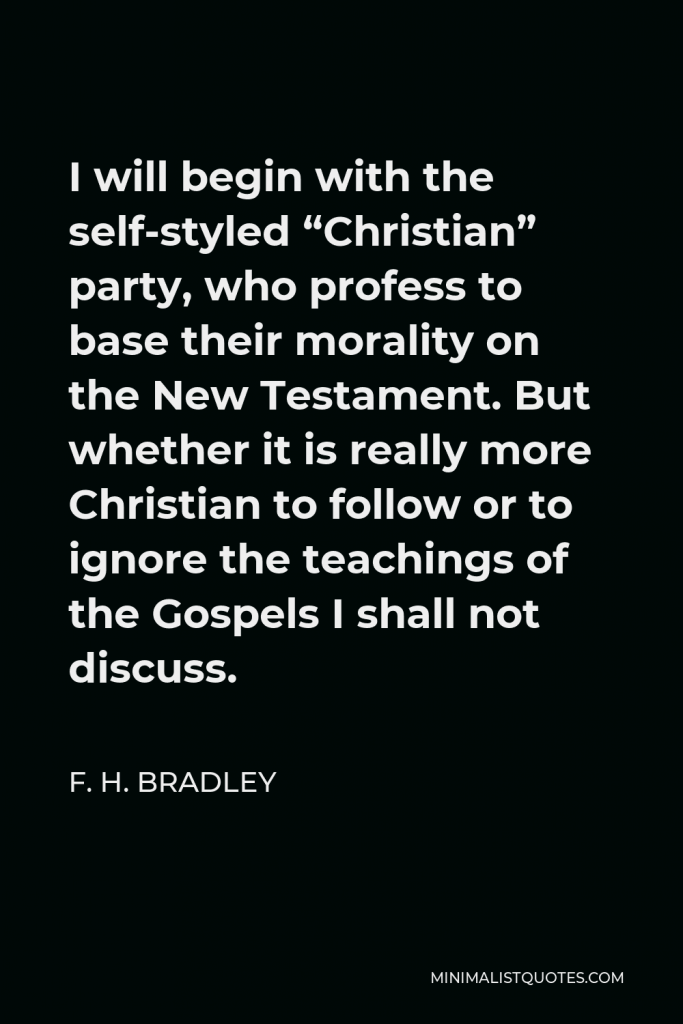

I will begin with the self-styled “Christian” party, who profess to base their morality on the New Testament. But whether it is really more Christian to follow or to ignore the teachings of the Gospels I shall not discuss.
F. H. BRADLEY -





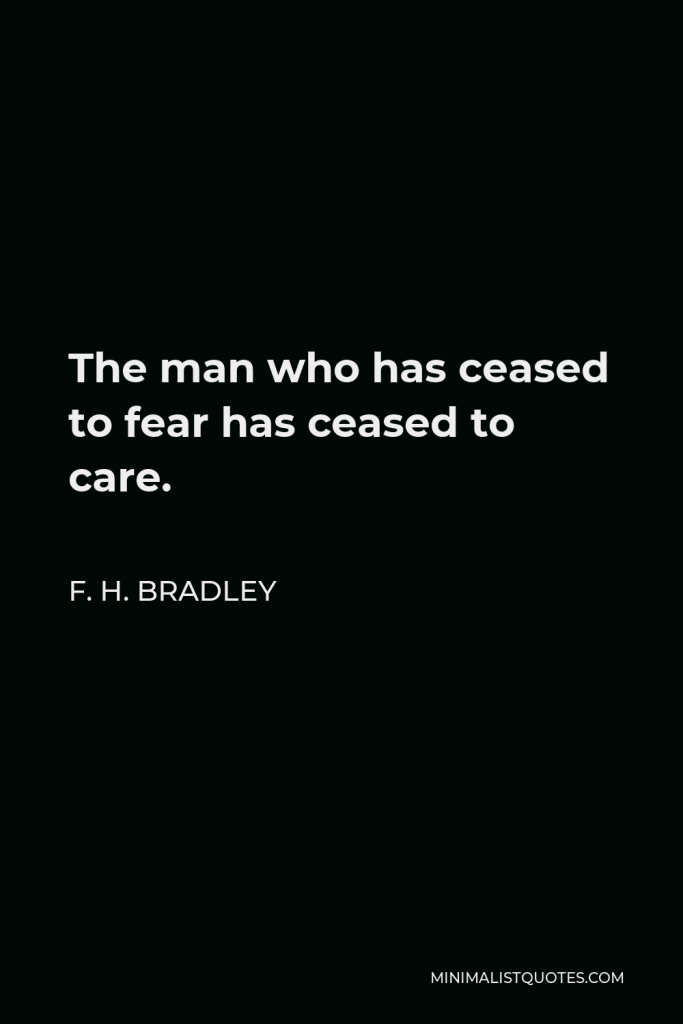

The man who has ceased to fear has ceased to care.
F. H. BRADLEY -





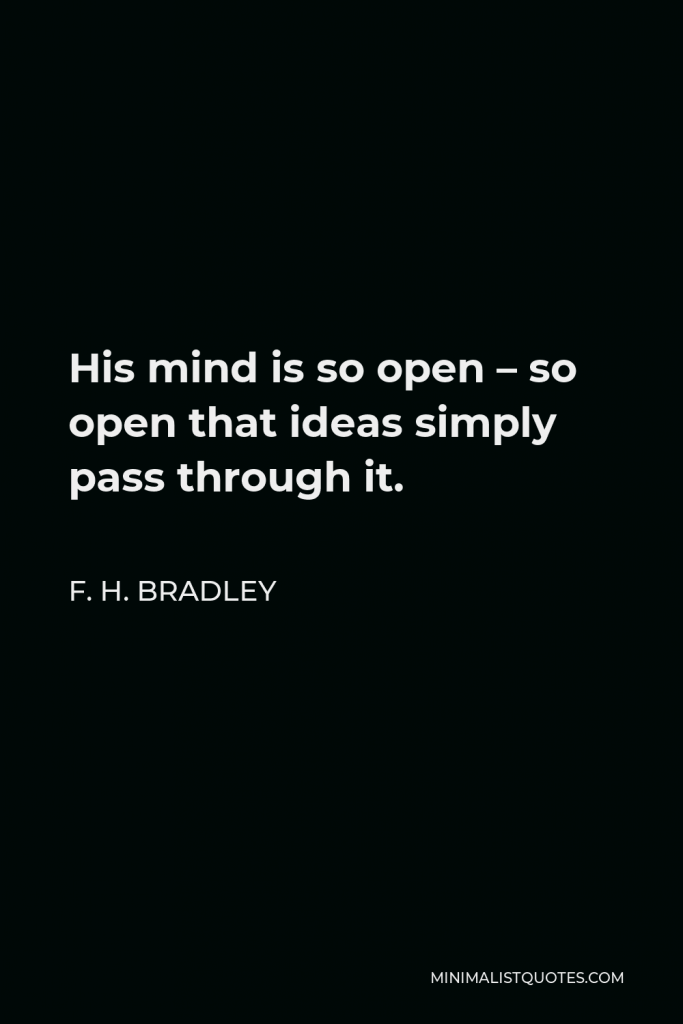

His mind is so open – so open that ideas simply pass through it.
F. H. BRADLEY -





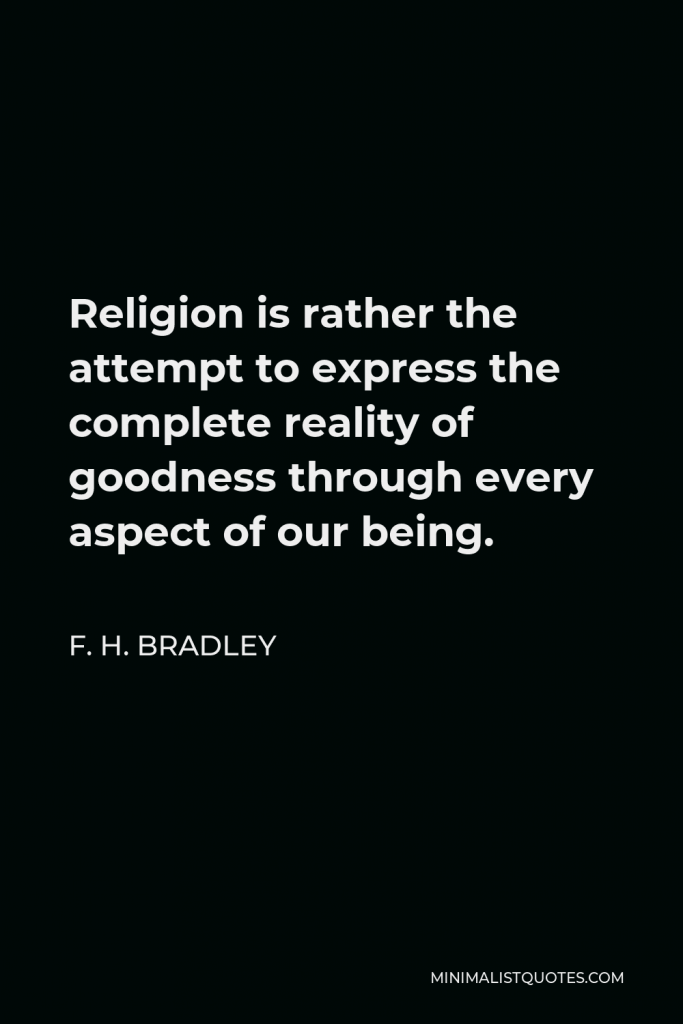

Religion is rather the attempt to express the complete reality of goodness through every aspect of our being.
F. H. BRADLEY -





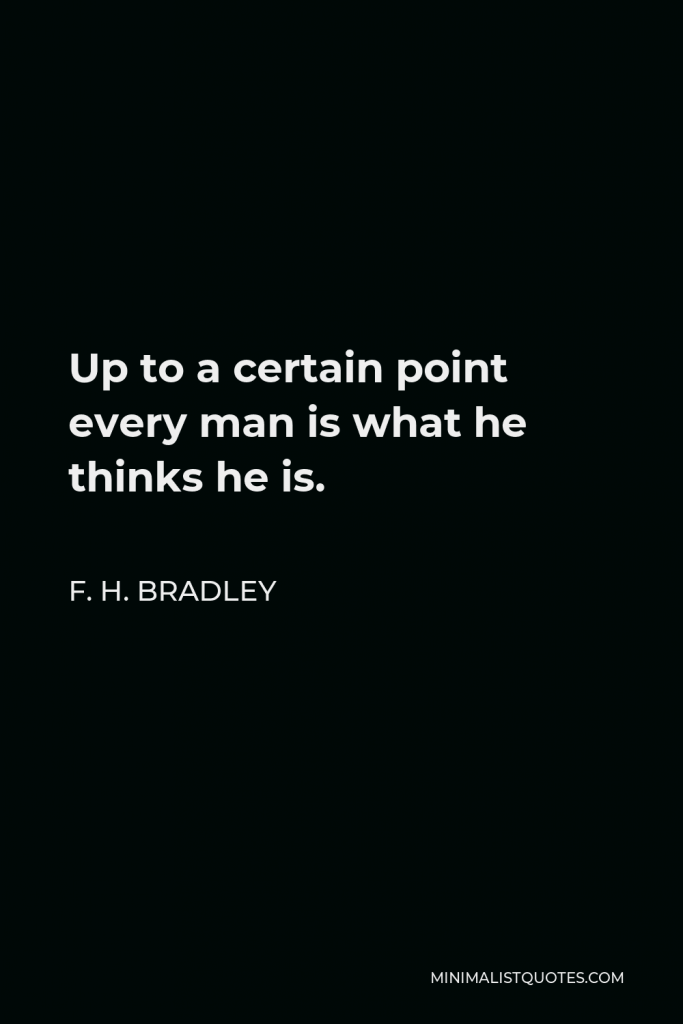

Up to a certain point every man is what he thinks he is.
F. H. BRADLEY -





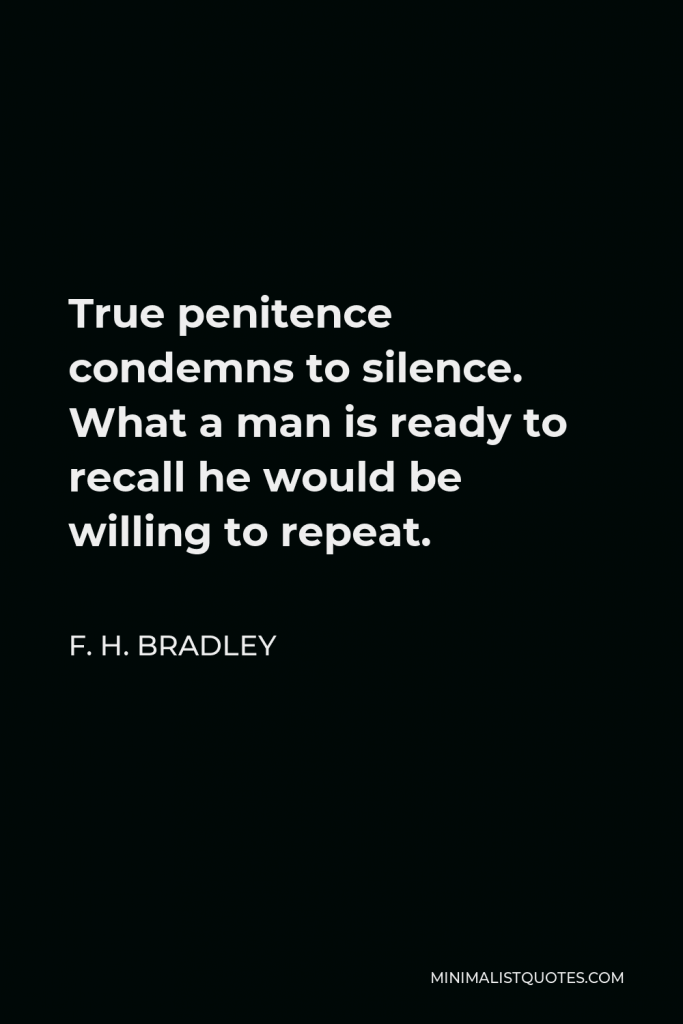

True penitence condemns to silence. What a man is ready to recall he would be willing to repeat.
F. H. BRADLEY -





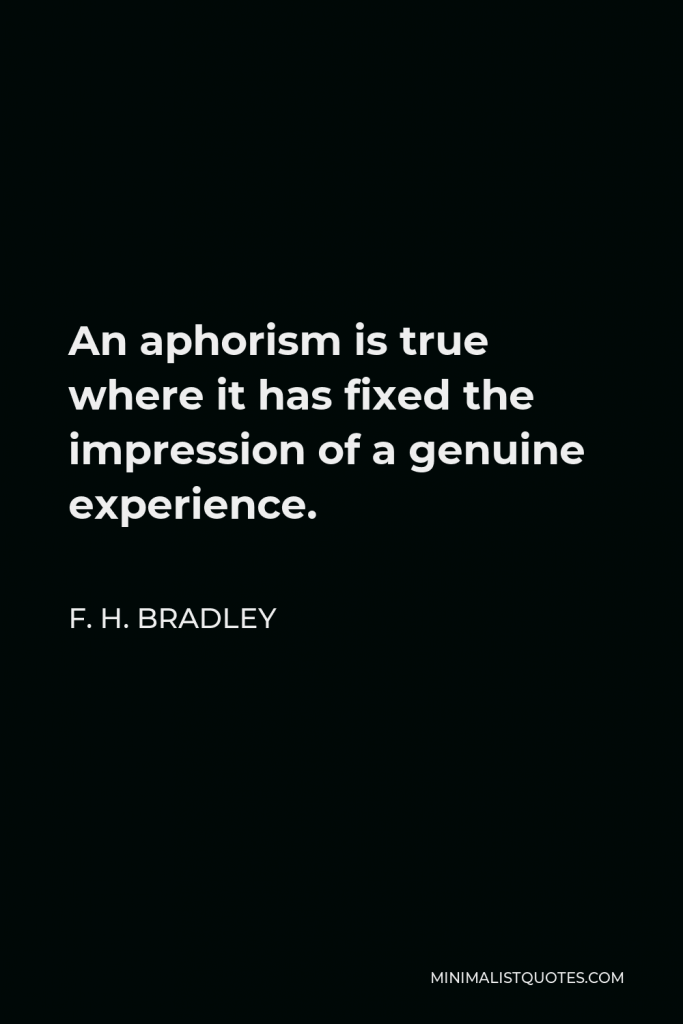

An aphorism is true where it has fixed the impression of a genuine experience.
F. H. BRADLEY -





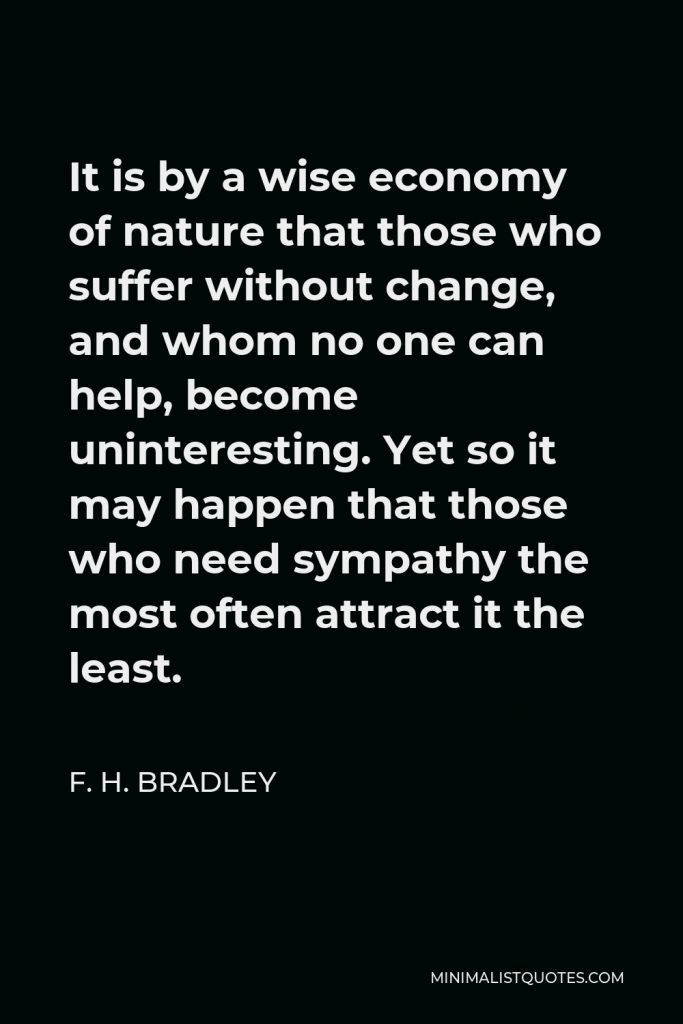

It is by a wise economy of nature that those who suffer without change, and whom no one can help, become uninteresting. Yet so it may happen that those who need sympathy the most often attract it the least.
F. H. BRADLEY -





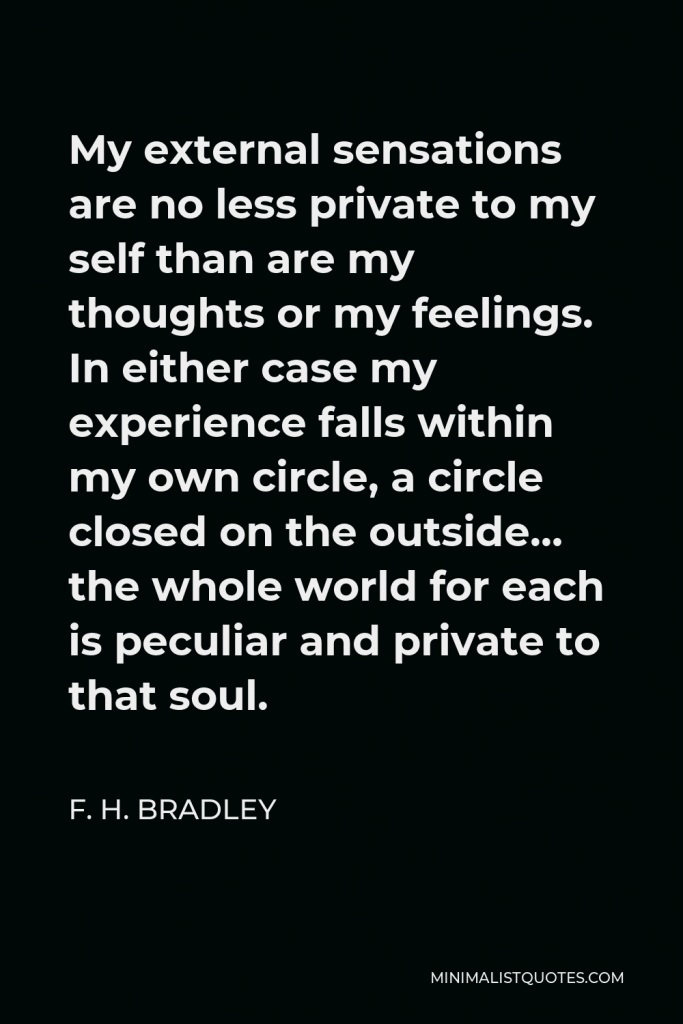

My external sensations are no less private to my self than are my thoughts or my feelings. In either case my experience falls within my own circle, a circle closed on the outside… the whole world for each is peculiar and private to that soul.
F. H. BRADLEY -





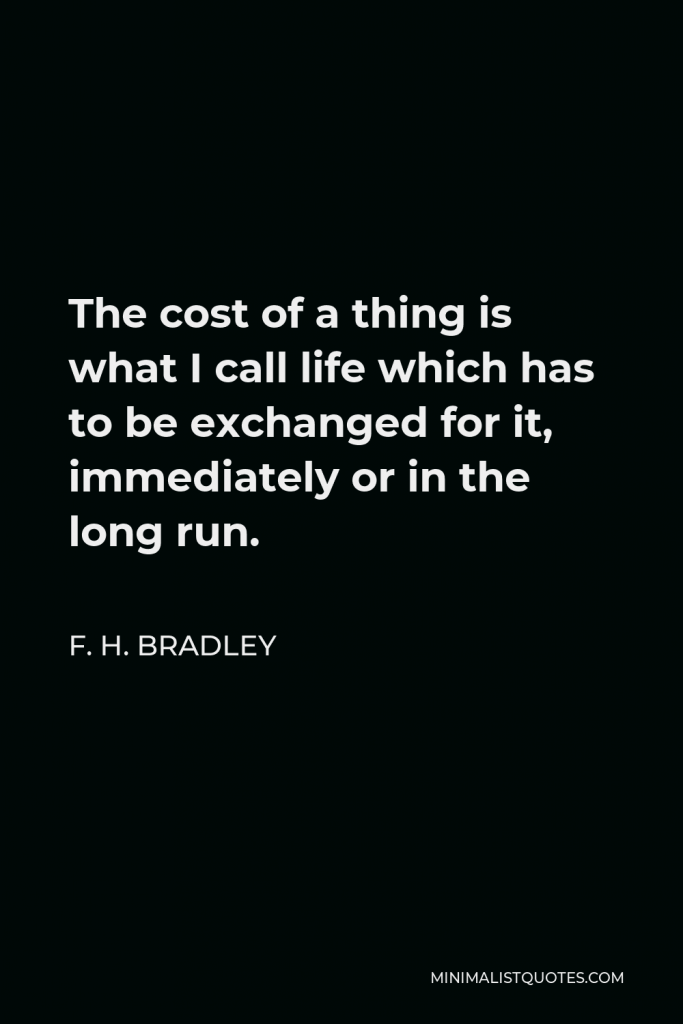

The cost of a thing is what I call life which has to be exchanged for it, immediately or in the long run.
F. H. BRADLEY -





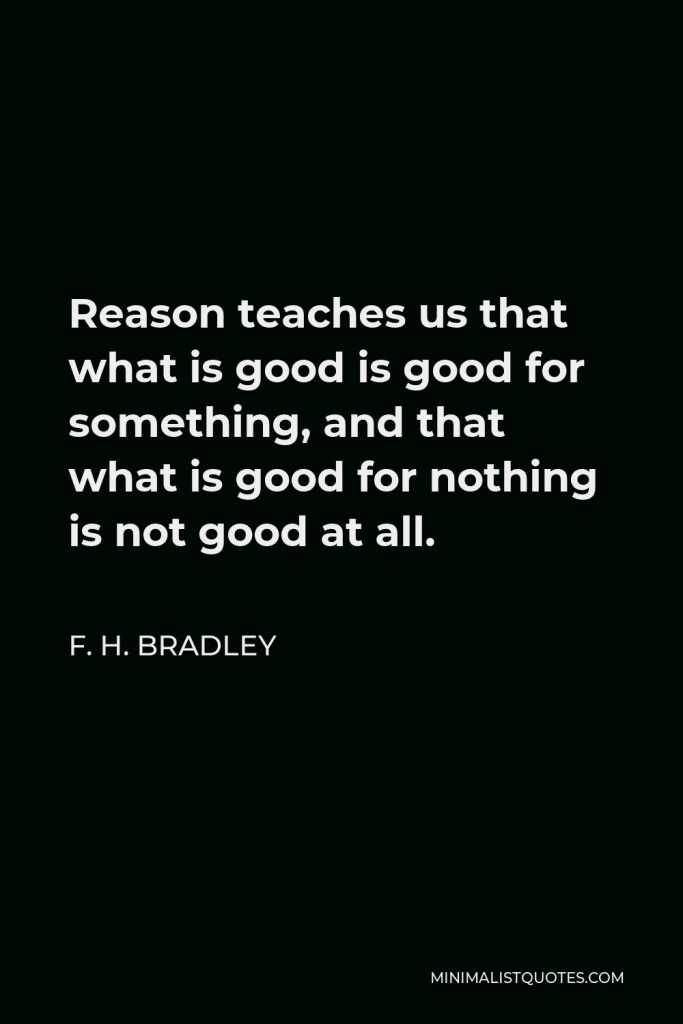

Reason teaches us that what is good is good for something, and that what is good for nothing is not good at all.
F. H. BRADLEY -





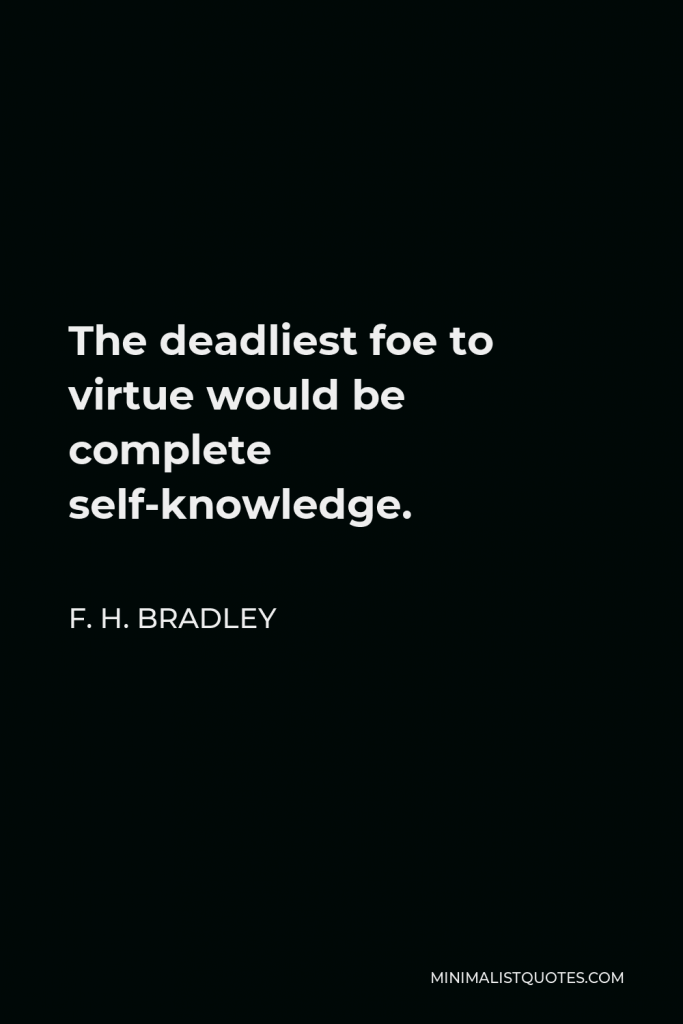

The deadliest foe to virtue would be complete self-knowledge.
F. H. BRADLEY -





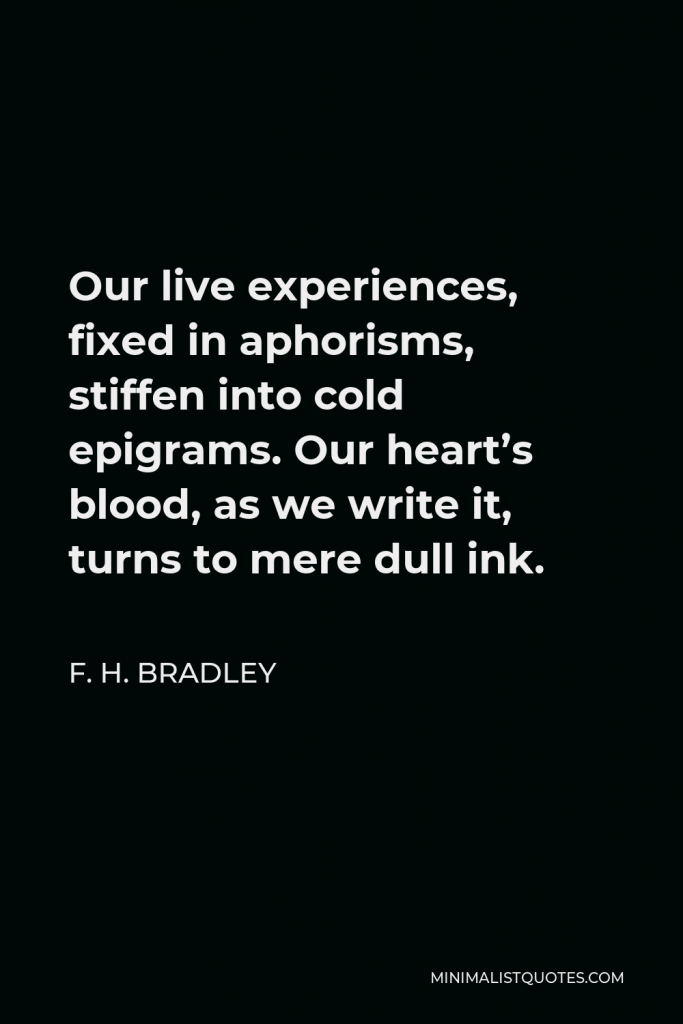

Our live experiences, fixed in aphorisms, stiffen into cold epigrams. Our heart’s blood, as we write it, turns to mere dull ink.
F. H. BRADLEY
